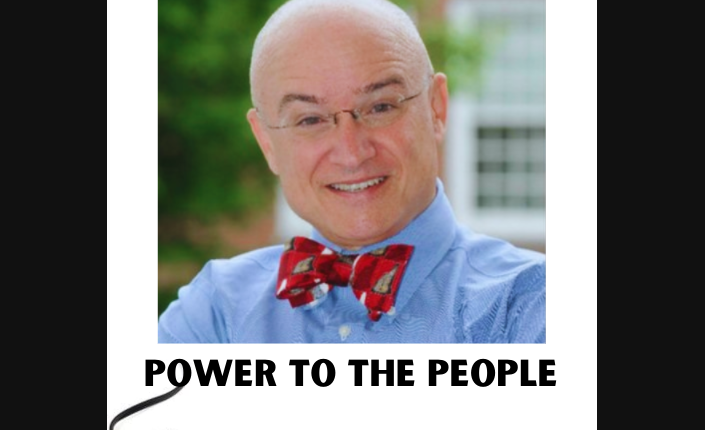Tree chippers had a good year in 1996.
In visual terms, the most memorable thing about Fargo was the sight of Steve Buscemi’s dismembered body being fed into a tree chipper. It wasn’t exactly heartwarming family entertainment.
The other tree chipper that came to prominence in 1996 was the work of the New Hampshire General Court. It is known as the Electric Industry Restructuring Act.
The purpose of the Restructuring Act was to turn the Public Utilities Commission (PUC) into the regulatory equivalent of a tree chipper. Into one end went the state’s vertically integrated electric utilities. Out the other end came restructured utilities, shorn of their generation facilities and their monopolies on the sale of retail electricity.
That process wasn’t exactly heartwarming family entertainment either. For one thing, chewing up electric utilities took considerably longer than dispatching the remains of Steve Buscemi required. Restructuring ended up taking 22 years, thanks in no small part to the utilities suing the PUC in federal court.
But, as of 2018, our electric utilities – Eversource, Liberty, the New Hampshire Electric Cooperative, and Unitil – are completely restructured. Their job is now strictly poles and wires and serving as a buying agent of sorts for customers who don’t wade into the retail electricity marketplace.
Unfortunately, though, the Restructuring Act is still on the books. And, it seems, every time the Restructuring Act comes up these days it is bad for consumers. I have three examples.
The first is the decision of the New Hampshire Supreme Court four years ago telling Eversource it was just fine to invest in a natural gas pipeline and send the bill to its electric customers. Somehow, the Restructuring Act became the pretext for that scheme. Thankfully, Eversource abandoned it.
Next is the ongoing fiasco over NHSaves, the state’s ratepayer-funded energy efficiency programs. Not only did the PUC refuse to approve the proposed triennial energy efficiency plan for 2021 through 2023. Via their big order in November, the utility commissioners signaled an intention to phase out ratepayer-funded energy efficiency altogether on the theory that market forces will cause energy efficiency to flourish naturally.
Remedial legislation is pending. So is an appeal, instigated by my office with others soon to join the fray.
Finally, there’s the Electric Assistance Program (EAP). It is a discount program for low-income people who can’t afford their electric bills.
Just the other day, on the morning after the coldest night we’ve had in several years, the PUC approved the EAP budget for the current winter heating season that officially began last fall. But the regulators did so grudgingly, strongly signaling a concern that the program is too generous to poor people. A showdown hearing looms later this year on a date to be determined.
In each of these instances, the problem is that the applicable statutory directive – to the extent it exists at all – is found in the Restructuring Act. And because the Restructuring Act was drafted so as to affect an industry transition, one that is now 100 percent complete, it is ill suited to serve as permanent policy guidance.
Regional fuel security (the pretext for the gas pipeline scheme), energy efficiency, and help with bill affordability are all matters completely tangential to electric industry restructuring. We restructured because, back in 1996, the hope was that consumers could save money via retail choice of electric suppliers.
It hasn’t worked out that way, at least for residential customers. Meanwhile, glancing references in the Restructuring Act, simply authorizing a System Benefits charge that funds NHSaves as well as EAP, are not enough to keep those initiatives vibrant. Not enough, that is, when the PUC is hostile to concepts like energy efficiency and helping poor people.
A different PUC might get the message from public opinion alone that New Hampshire is committed to energy efficiency and to assisting people who can’t afford their electric bills. This PUC needs specific, emphatic legislative guidance to that effect.
House Bill 549 does the job when it comes to energy efficiency. Yeah, my effort to pry the language out of the Restructuring Act went nowhere. But at least there will be sentences in the Restructuring Act that will clearly instruct the PUC to reverse itself on NHSaves. Passage seems likely and Governor Sununu has already promised to sign HB 549.
Now we need to do the same thing for the Electric Assistance Program, so people really know that help will always be there. If you need that help, by the way, the place to go is your local community action agency.
Ultimately, we should repeal the Restructuring Act and replace it with an electrical industry regulatory statute that makes clear what New Hampshire expects from its electric utilities. They have been through the tree chipper and made it to the other side. Now we just need to tell them, and the PUC, what we want from our electric service in the years ahead.
Power to the People is a column by Donald M. Kreis, New Hampshire’s Consumer Advocate. Kreis and his staff of four represent the interests of residential utility customers before the NH Public Utilities Commission and elsewhere.
This story was originally published by InDepth NH.



Comments are closed.